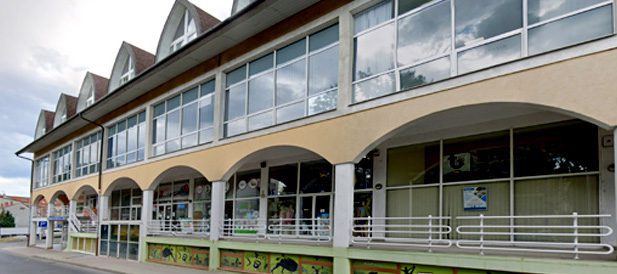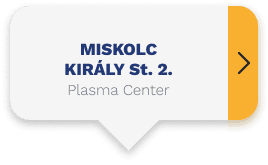With us, even the suitability pays off!
Become a plasma donor too: help seriously ill patients in an hour
and earn benefits of up to HUF 585,000 per year!
What is blood plasma?
Blood plasma is the liquid part of the blood, which is a yellow liquid. This part performs the “courier service” of blood in the body: it transports red and white blood cells, nutrition and substances that are vital to the body. Red blood cells carry oxygen to the right places, white blood cells fight pathogens and help heal injuries, and platelets stop bleeding.
Why is it important?
Donating plasma can be life-saving, as medicines made from donated plasma are used to treat serious, often rare diseases, such as bleeding disorders and immune problems. Many indispensable, vital medicines for patients are made from plasma proteins. The contribution of voluntary donors is vital to improving the quality of life of patients. Plasma donors thus help not only individual people, but the entire community.
Who can donate plasma?
Plasma can be donated by those who are between the ages of 18 and 65, are healthy and weigh up to 50 kg, but not more than 150 kg. First, we do a medical exam and a blood test to make sure everything is fine. If the results of the first tests are good, then the next time we will carry out a medical examination, questionnaire and other necessary checks before approving the plasma donation. The plasma collected once is regenerated by the body within 2 days, therefore 2 days must pass between two plasmapheresis, so the next plasmapheresis can take place on the third day, but no more than 45 times in a year (365 days).
What is plasmapheresis?
Plasmapheresis is a special procedure where plasma is extracted from the blood and collected. This is done by taking blood from the donor’s vein, similar to blood sampling, and then using a special machine to separate the plasma from the blood’s shaped elements. After separating the plasma, the useful blood cells are returned to the donor’s body. This whole process does not hurt, it feels like no more than a normal blood donation. Nevertheless, plasma donation, like whole blood donation, can make the lives of many patients more livable.
Plasma donation
in three easy steps
Step 1: Suitability examination
The process starts with the entry of personal data, where the three key documents – valid identity card, residential address card, social security number card – are required. This is followed by filling out a short questionnaire and a thorough medical examination, during which we also take a blood sample. It is important to know that no plasma donation takes place at this time. You have to wait about a week for the results of the laboratory test of the blood sample, which determines whether someone can be a plasma donor.
1
Step 2: Plasma donation
When you visit us again, you will have another medical examination and get a short questionnaire. Here, we check your basic health status: your body temperature, blood pressure, pulse, hemoglobin level in your blood and your weight. However, by regularly checking these values, we also take care of your health. The actual plasma donation takes an average of 60 minutes. The duration also depends on how much fluid you consumed before donating.
2
Step 3: Expect good for a good deed!
Every time you donate plasma, you help a fellow human being, whether it’s saving a life or improving the quality of life. Haema Plasma appreciates this selfless act and rewards it with various benefits: cash, gift cards, nutritious treats and regular promotions. Your help is valuable and we want to show you how much we appreciate it!
3
It pays off to help others!
AS A NEW PLASMA DONOR, YOU'LL REWARDED EXCEPTIONALLY WELL,
YOU CAN GET A BENEFIT OF HUF 70,000,
if you take a successful suitability test,
then complete 5 plasma donations!*
AS A NEW PLASMA DONOR, you can earn up to HUF 585,000 in one year if you become our regular plasma donor.*
*The amount of the benefit consists of cash and a Rewin voucher.
Said about us
Very organized, everyone is very nice. I like how they say before they inject me because I’m really scared. The first time, one of the doctors talked to me the whole time and tried to get my attention, it was so kind of them.
I am always welcomed here and I feel completely safe. The ladies know what they’re doing, they’re good at it. The coffee is delicious.
You are always greeted by a pleasant, friendly and relaxed atmosphere. I always get in quickly based on my appointment. Everyone is nice, fast and helpful. A real family team and environment.
It is a good experience that the central employees talk kindly and openly with the donors. They were curious and happy to tell me about the things I make. It is a pleasure that the small decoration made for the center was received with childlike happiness. It can be seen that they approach donors not only with expertise, but also with heart.
Ability to help both at the counter, in the rooms and with the doctor. Extra attention, they gave me another paper glue because of my allergic reaction. If someone has a problem, let them know, because everyone in the room will help. They are very kind.
Since I started donating, I have paid much more attention to my health and nutrition. It gives me pleasure to help others!
NAGYKANIZSA CÉLPONT MALL Plasma Center


Opening Hours
| Monday: | 8:30-14:45 |
| Thuesday: | 11:30-17:45 |
| Wednesday: | 11:30-17:45 |
| Thursday: | 8:30-14:45 |
| Friday: | 10:30-16:45 |
| Saturday: | Closed |
| Sunday: | Closed |
Questions and answers about plasma donation
Plasma can be donated by those who are between the ages of 18 and 65, are healthy and weigh up to 50 kg, but not more than 150 kg. First, we do a medical exam and a blood test to make sure everything is fine. If the results of the first tests are good, then the next time we will carry out a medical examination, questionnaire and other necessary checks before approving the plasma donation. The plasma collected once is regenerated by the body within 2 days, therefore 2 days must pass between two plasmapheresis, so the next plasmapheresis can take place on the third day, but no more than 45 times in a year (365 days).
The process starts with the entry of personal data, where the three key documents – valid identity card, residential address card, TAJ card – are required. After registration, we will give you a donor information sheet, followed by a roughly one and a half page questionnaire. This is followed by a thorough medical examination, during which we also take a blood sample. It is important to know that no plasma donation takes place at this time. You have to wait about a week for the results of the laboratory test of the blood sample, which also helps determine whether someone can be a plasma donor.
Please arrive exactly at the booked time so that we can be sure to receive you. In the days before the examination, we recommend increased fluid intake, in order to make your veins easier to find. It is important to bring your valid identity card, social security number and address card with you. Please note that we are unable to accept you if you are breastfeeding or pregnant, or if you have had a piercing or tattoo in the last 4 months. Our eligibility criteria include that you weigh between 50 and 150 kg, and if you are on long-term medication or have undergone a medical procedure, please bring your medical records.
If you suffer from the following severe or advanced chronic diseases, you unfortunately cannot be a plasma donor.
Diabetes requiring insulin treatment
Serious cardiovascular disease, such as heart rhythm disorders, heart attack, heart valve problems, and heart failure
Severe inflammatory bowel diseases, including Crohn’s disease and ulcerative colitis
Severe liver diseases such as hepatitis and jaundice, including unknown, infectious and autoimmune types
Severe lung diseases such as asthma, chronic bronchitis, if they require long-term medication, and pulmonary embolism
Serious neurological conditions including epilepsy, stroke, stroke, repeated fainting spells and seizures
Serious psychiatric illnesses
Immune system disorders such as congenital or acquired immunodeficiency, systemic autoimmune diseases and rheumatoid arthritis
Kidney failure and chronic kidney diseases
Hematopoietic diseases, including leukemia, bleeding disorders, and blood clotting disorders
Cancerous diseases
You cannot temporarily donate plasma in the following cases:
For 2 weeks after tooth extraction or root canal treatment
In case of fever, infectious respiratory diseases or diarrhea for 2 weeks after recovery
In the case of cold sores, up to 2 weeks after healing
During pregnancy and 6 months after childbirth
During breastfeeding
For 4 months after getting a tattoo, make-up tattoo, piercing or ear piercing, after that a blood test for virus testing is required
For 4 months after a major surgical intervention or colonoscopy, which is also followed by a control blood test for viral testing
You can book an appointment online on our website, by phone, or in person at the plasma center of your choice.
At HAEMA, you can donate plasma if you have a social security number card and social security number, regardless of whether you have health insurance.
Blood consists of different components: plasma and shaped elements such as red blood cells and white blood cells. When donating blood, the entire composition of the blood is removed, but when donating plasma, only the plasma is collected, after separating the plasma, the useful blood cells are returned to the donor’s body. After plasma donation, the body regenerates within 48 hours with proper nutrition and fluid replacement.
The plasma collected once is regenerated by the body within 2 days, therefore 2 days must pass between two plasmapheresis, so the next plasmapheresis can take place on the third day, but no more than 45 times in a year (365 days). It usually takes 2 days for the body to replace the proteins, ions, fluid volume, blood sugar and other nutrients in the plasma. It is rarely necessary to tailor the donation rate to an individual, however, if justified, our doctors set the optimal donation intervals individually, so it is possible that we will recommend a less frequent plasma donation rate. In general, it can be said that with adequate nutrition, 1 plasma donation per week is not burdensome for the body. At Haema Plasma, we check the most important parameters during each plasma donation, so our doctors can ensure safe plasma donation for everyone.
We will inform you about the results of the physical medical examination already during the examination, and you will have to wait approximately 1 week for the results of the blood test. If we have your email address, we will send you a notification after receiving the results of the laboratory test. If you do not have a fixed email address and the lab results are not suitable, we will contact you on the phone number provided to invite you to a personal meeting. One week after the suitability test, you can find out about the test result and apply for the first plasma donation.
Plasma donation is safe, because most of the blood plasma is water, and the rest consists of substances such as proteins and vitamins, which can be easily replaced with adequate fluid intake and proper nutrition. Donating plasma is not harmful to health if you follow the recommendations. Also, our donor examiners check the most important parameters at each plasma donation, for the sake of your health and the safety of plasma donation.
Patients receive medicines made from blood plasma with the support of social insurance, thus helping them to recover.
The Rewin gift voucher can be used in many places, so it offers a wide range of shopping options. You can use it in food, tech, home decor, beauty, books, clothing, and more. You can find exactly where you can redeem it on the page https://rewin.hu/elfogadohely-kereso/, where you can browse the detailed list of redemption places.
Haema Plasma centers accept plasma donors from the following counties:
Budapest plasma center: from Komárom-Esztergom, Fejér and Pest counties
Debrecen plasma center: from Jász-Nagykun-Szolnok, Szabolcs-Szatmár-Bereg and Hajdú-Bihar counties
Nagykanizsa plasma center: from the counties of Zala, Somogy, Vas and Veszprém
Pécs plasma center: from the counties of Tolna, Somogy and Baranya
Miskolc plasma center: from Heves and Borsod-Abaúj-Zemplén counties
The blood plasma
Blood plasma is the source of life-saving proteins from which special, irreplaceable medicines are produced. Since these proteins cannot be reproduced artificially, plasma donations are essential for people who suffer from this disease. Become an everyday hero yourself, donate plasma!
Booking an appointment
Choose from the options:
If you are not yet our donor
If you are already our donor







